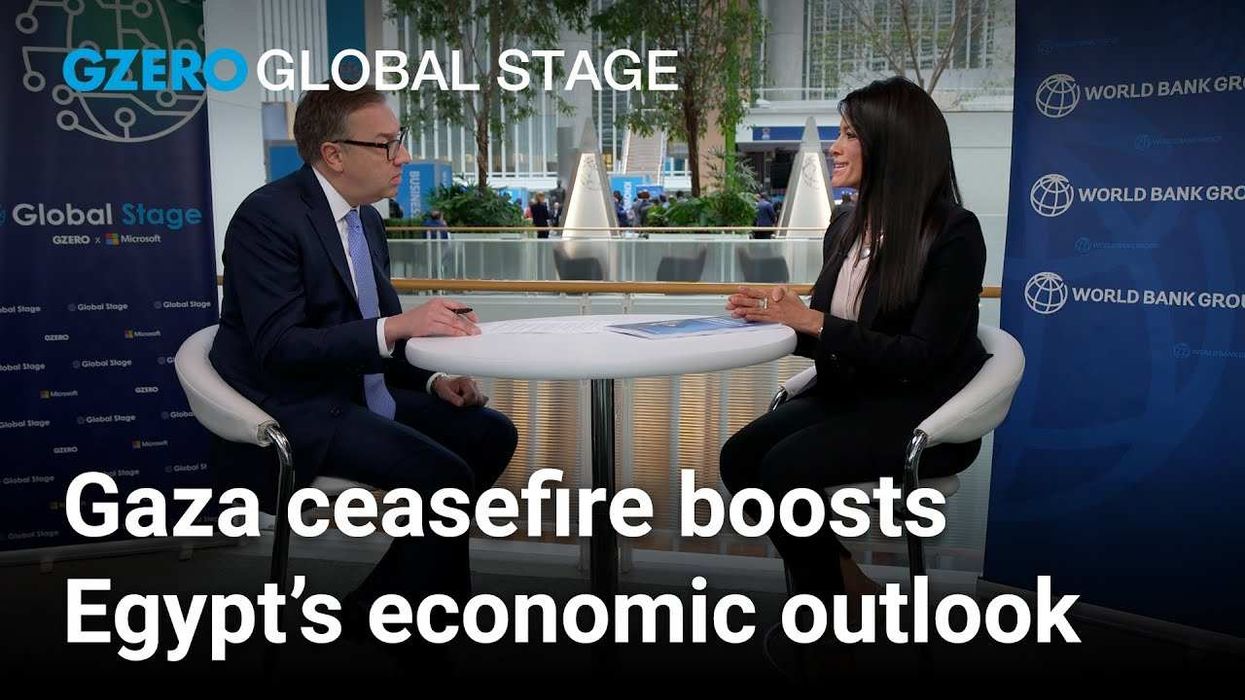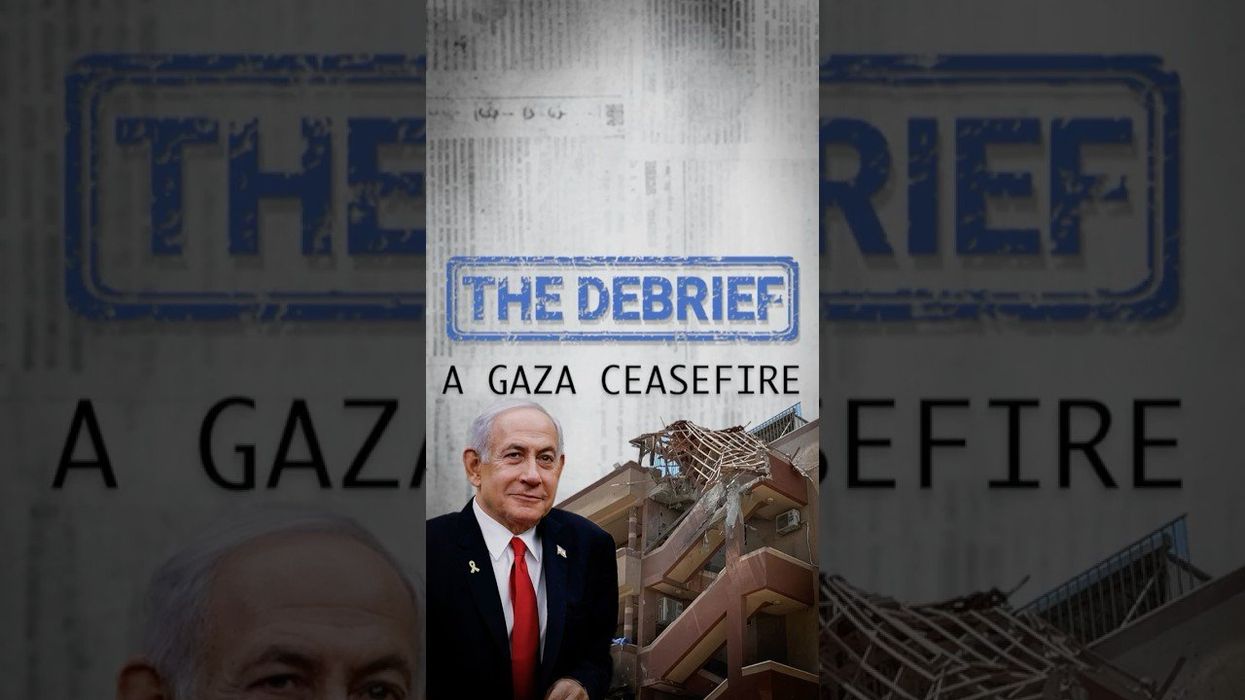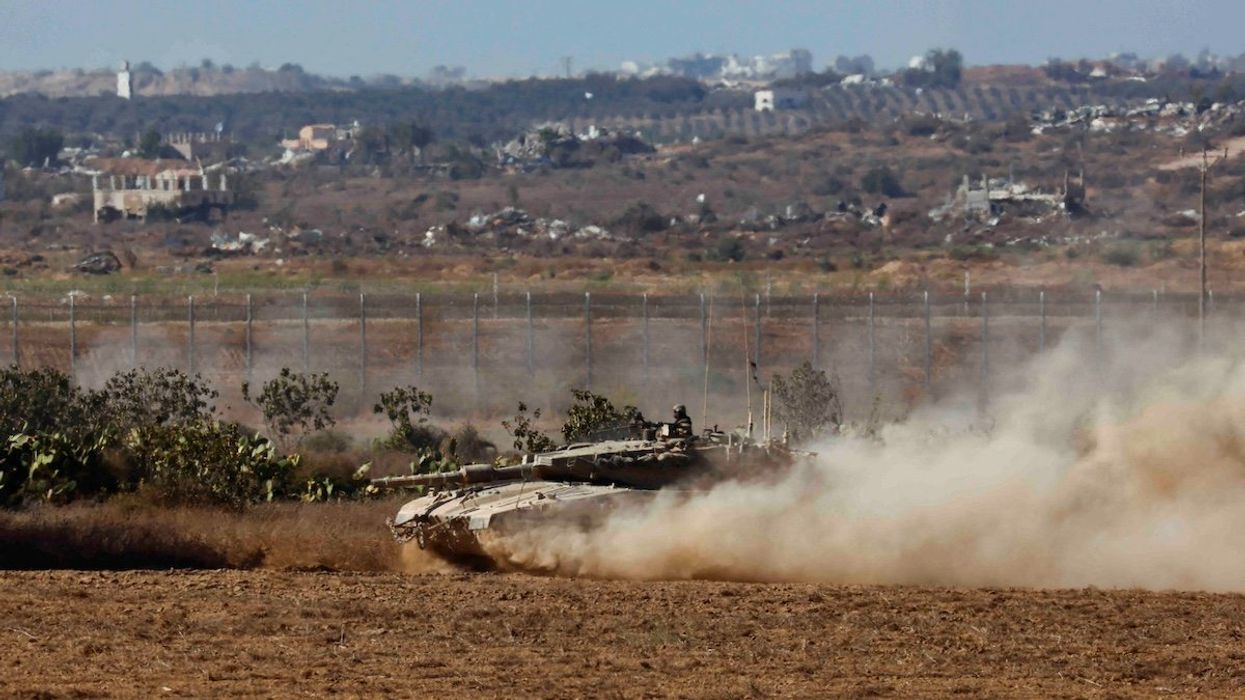World Bank & IMF Meetings
Egypt's path to economic stability with Rania Al-Mashat
As a landmark Gaza ceasefire reshapes Middle East stability, what does it mean for Egypt’s growth outlook? Egypt’s Minister of Planning, Economic Development, and International Cooperation, Rania Al-Mashat tells GZERO’s Tony Maciulis the deal is “a monumental moment” and durable.
Oct 16, 2025





